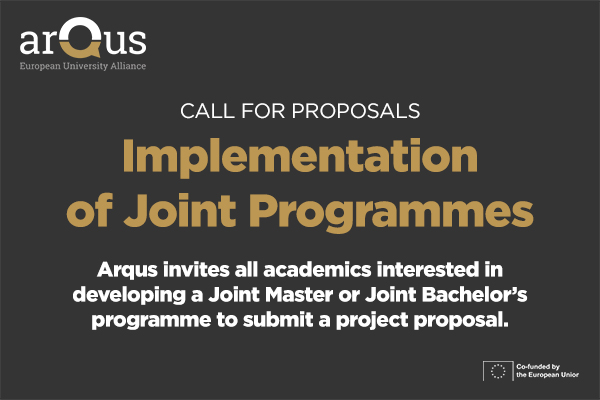To provide the best possible support for the often-complex implementation process, the Alliance offers the following:
a) Financial support:
3 Joint Programmes at Bachelor level and 3 Joint Programmes at Master level will be funded with a lump sum of € 30,000 each which may be used for organisational support of the implementation.
Funding may cover coordination, training activities, travel costs for coordination meetings, translation expenses, accreditation costs.
The application must include a budget plan and clear cost breakdown showing how the partnership intends to use the funds and how they are to be distributed within the consortium.
Please include a detailed cost estimation for external accreditation costs if foreseen.
b) Information and expertise:
The team of Arqus Work Package 6 (Innovative Learning Pathways) has designed a series of training courses at different levels and on different topics relevant for the design and implementation of joint programmes. The first three trainings are designed as introductory modules that can be attended separately or consecutively, are open to academic and administrative staff on departmental and central level and cover the following topics:
- Joint Programmes, A very initial introduction to the why and who.
- Joint Programmes: Preparing the grounds for a successful programme implementation.
- Joint Programmes: Preparing relevant documents.
In addition, the Arqus Alliance and the Work Package 6 members will offer continuous support by providing individual counselling as well as best practice examples and individual advice on concept design, preparation, development and implementation.
